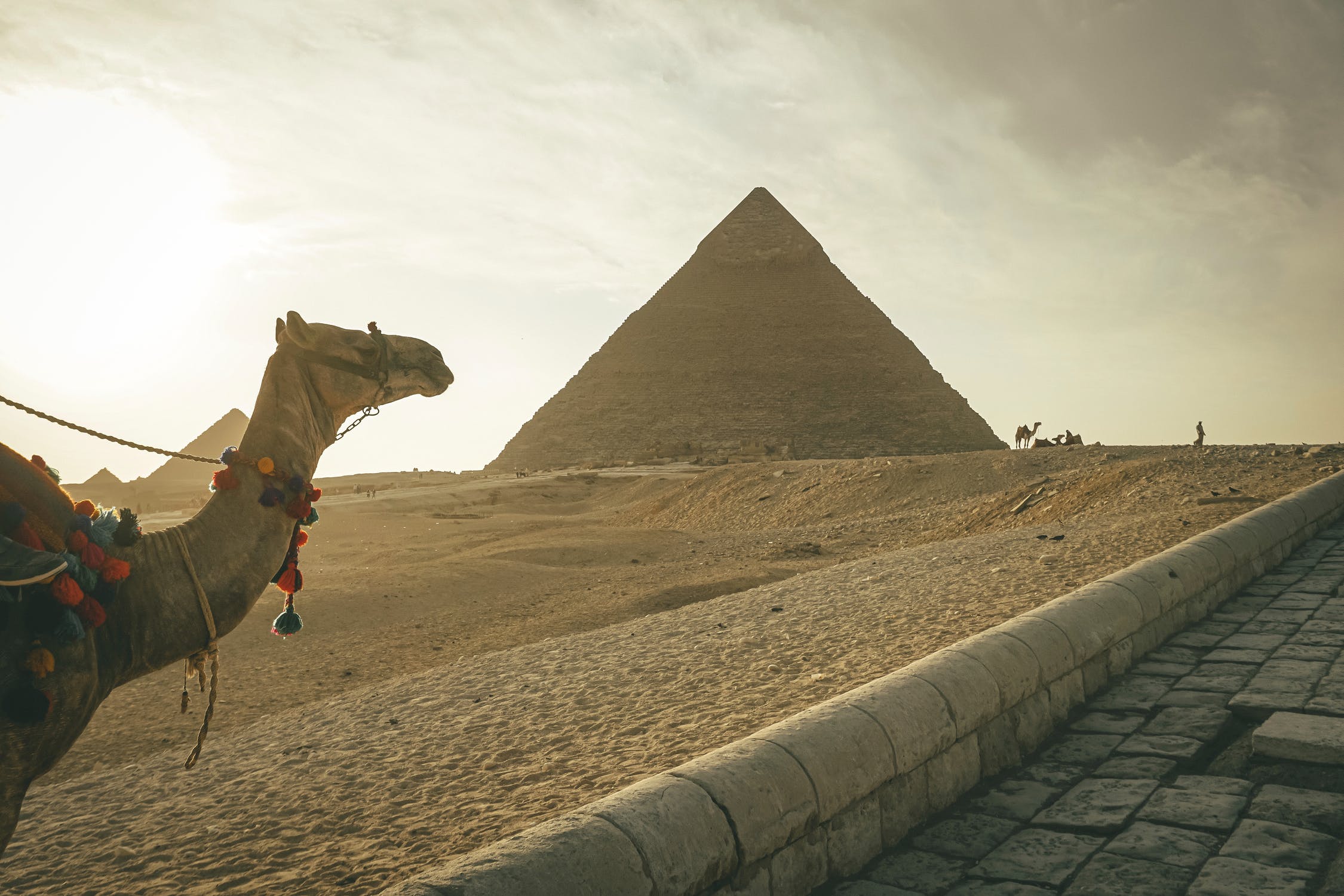Explore the rare sites and scenes, including other exciting facts about a natural geographical phenomenon that is both breath-taking and memorable.
Did you know one-third of our planet’s total surface area is made up of deserts? Let us explore which is the largest desert in the world. We will also touch upon the largest hot desert in the world and the coldest deserts in the world. Learn interesting details about their size, where these deserts are located, and the features that make this creation such a marvel of nature.
List of the largest deserts in the world
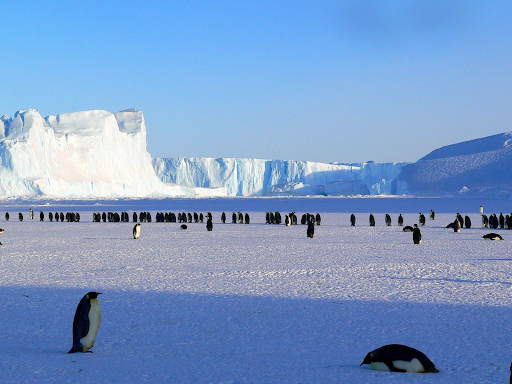
1. The Antarctic Desert
Area size: ~ 14.2 million square kilometres / ~ 5.5 million square miles
Location: Antarctica
Desert type: Polar cold desert
Situated next to the South Pole, the Antarctic desert is the largest desert of the world with bone-chilling cold and windy habitat and changing cycles of freezing that change the landmass during the winter months due to the formation of ice around its borders.
Antarctica’s average annual temperature ranges between −10 °C on the coast to −60 °C at the highest parts of the interior landmass. However, towards the beach, the temperature could exceed +10 °C during summer and fall to below −40 °C during winter.
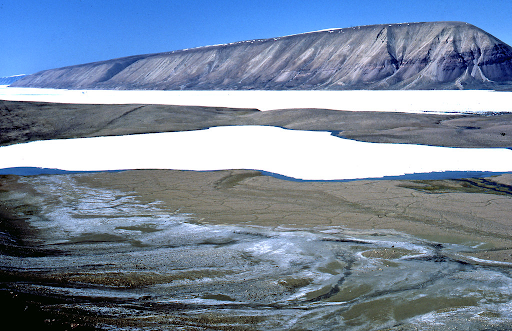
2. The Arctic Desert
Area size: ~ 13.9 million square kilometres / ~ 5.4 million square miles
Location: Arctic Circle (part of Greenland/Denmark, Russia, Canada, USA, Finland, Sweden, Norway & Iceland)
Desert type: Polar cold desert
Located above a collection of three North Pole islands and a massive landmass that cuts across three continents of North America, Asia, and Europe is the second-largest desert in the world known as the Arctic desert.
Some of its distinct features are high winds which include persistent and continuous snowfall creating a dip in the annual temperature in –40 deg C. In recent years, the Arctic desert has become an important topic of discussion and extensive research due to a vulnerability to the rise in the burning of fossil fuel energy.
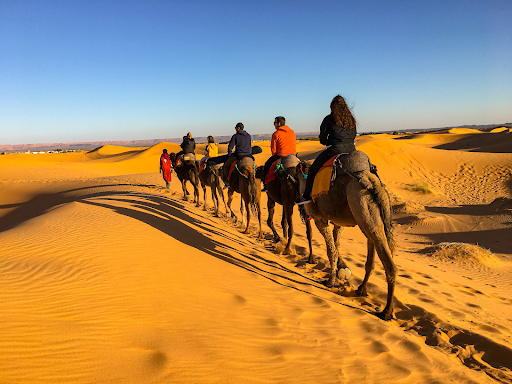
3. The Sahara Desert
Area size: ~ 9.1 million square kilometres / ~ 3.5 million square miles
Location: Northern Africa (part of Algeria, Libya, Chad, Egypt, Mauritania, Mali, Western Sahara/Morocco, Sudan & Tunisia)
Desert type: Arid hot desert
The name ‘Sahara’ has come from the Arabic word for ‘desert.’ This is the largest hot desert in the world and the third-largest barren landmass. Located in the northern parts of Africa, the Sahara Desert is bounded in the east by the Red Sea as it stretches west to the Atlantic Ocean. The Sahara desert’s northern boundary is the Mediterranean Sea. At the same time, it ends at the Sahel towards the south, an area where the desert landscape transforms into a semi-arid tropical savanna.
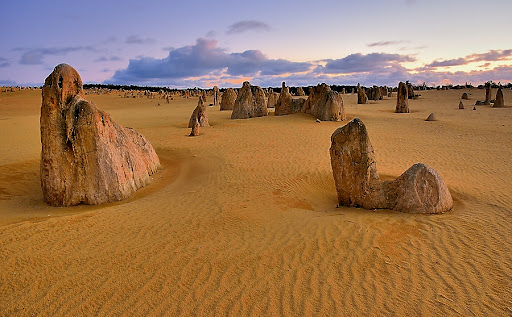
4. The Australian Desert
Area size: ~ 2.7 million square kilometres / ~ 1.04 million square miles
Location: Australia
Desert type: Arid hot desert
Situated in the north and the interior arid regions of the Australian continent lies the Great Australian desert. Also known as the Australian outback, which is a colloquial term referring to how remote the location is compared to more remote than “the bush.”
Due to the exponential growth in urban cities and farmlands along the coastal regions of the continent, the Aboriginal natives have migrated towards the Great Australian deserts. Into places such as Ayers Rock (Uluru), where they seek spiritual sanctuary and peace just as their ancestors.
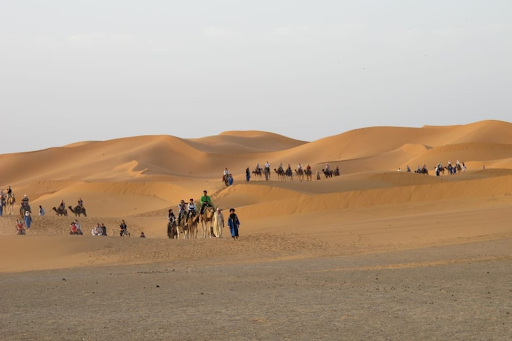
5. The Arabian Desert
Area size: ~ 2.3 million square kilometres / ~ 890,000 square miles
Location: The Middle East / Western Asia (part of Saudi Arabia, Oman, Yemen, Iraq, UAE, Jordan, Bahrain & Qatar)
Desert type: Arid hot desert
Situated in the Arabian Peninsula, the Arabian desert is the fifth-largest desert in the world and the largest in Eurasia. This continuous body of sand is a sight to behold with its wavy, silky dunes that zig-zag across with layered mounds of shifting sands that constantly change with the desert winds.
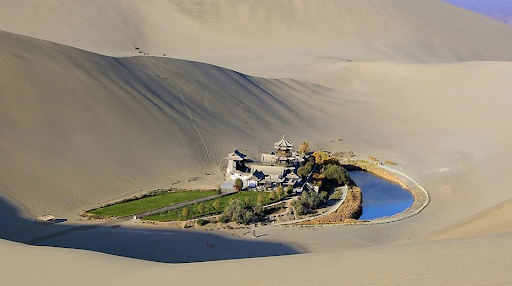
6. The Gobi Desert
Area size: ~ 1.3 million square kilometres / ~ 500,000 square miles
Location: Eastern Asia (part of China & Mongolia)
Desert type: Cold desert
The Gobi Desert is the second largest desert in Asia, present in large parts of southern Mongolia and Northern China. This particular dessert has been known to have been transformed into a desert region due to the harsh mountainous terrain believed to block rain-bearing clouds reaching this specific patch of land.
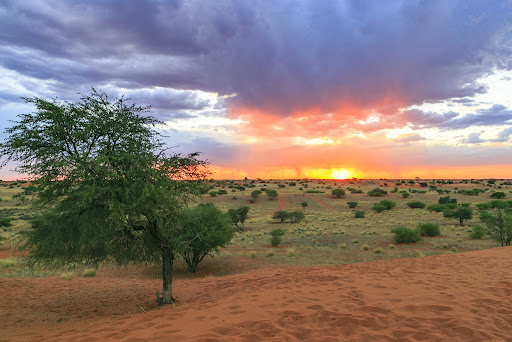
7. The Kalahari Desert
Area size: ~ 930,000 square kilometres / ~ 360,000 square miles
Location: Southern Africa (part of Botswana, Namibia & South Africa)
Desert type: Semi-arid hot desert
The Kalahari Desert gets its name from the Tswana word “Kgala,” which means –the great thirst. It is located in the southern parts of the African continent, stretching from Botswana, Namibia, and down to South Africa.
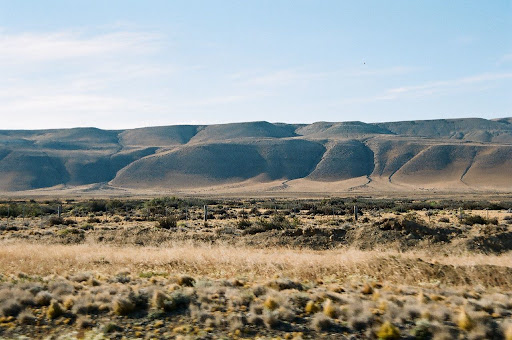
8. The Patagonian Desert
Area size: ~ 670,000 square kilometres / ~ 260,000 square miles
Location: South America (part of Argentina & Chile)
Desert type: Cold desert
The Patagonian Desert is the largest in South America. Its characteristic features are shrubs and thorny plantations that stretch across the vast landscape. This desert also experiences a continuous windy and year-round frosty climate.

9. The Syrian Desert
Area size: ~ 520,000 square kilometres / ~ 200,000 square miles
Location: Middle East (part of Syria, Jordan & Iraq)
Desert type: Semi-arid hot desert
This bare, dry, and rocky desert is complemented with its dry riverbeds that remind us of its rich fertile past. The Syrian desert merges with the Great Arabian desert to its south. After which the terrain of the desert changes to its famous silky dunes and shifting sands of time.
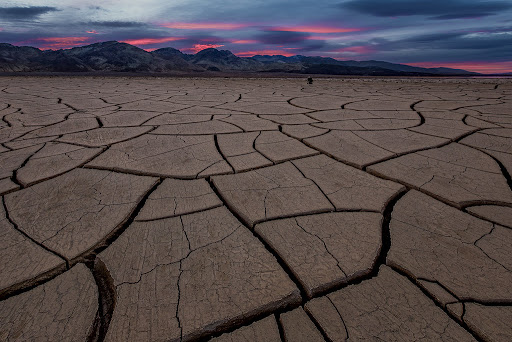
10. The Great Basin Desert
Area size: ~ 490,000 square kilometres / ~ 190,000 square miles
Location: USA (part of the U.S. states of Nevada & Utah)
Desert type: Cold desert
Located between the Sierra Nevada and the Wasatch Mountains, the Great Basin Desert is the largest in the central west region of Nevada, USA. Situated in the central zone of this desert is the world-renowned Great Basin, National Park.

